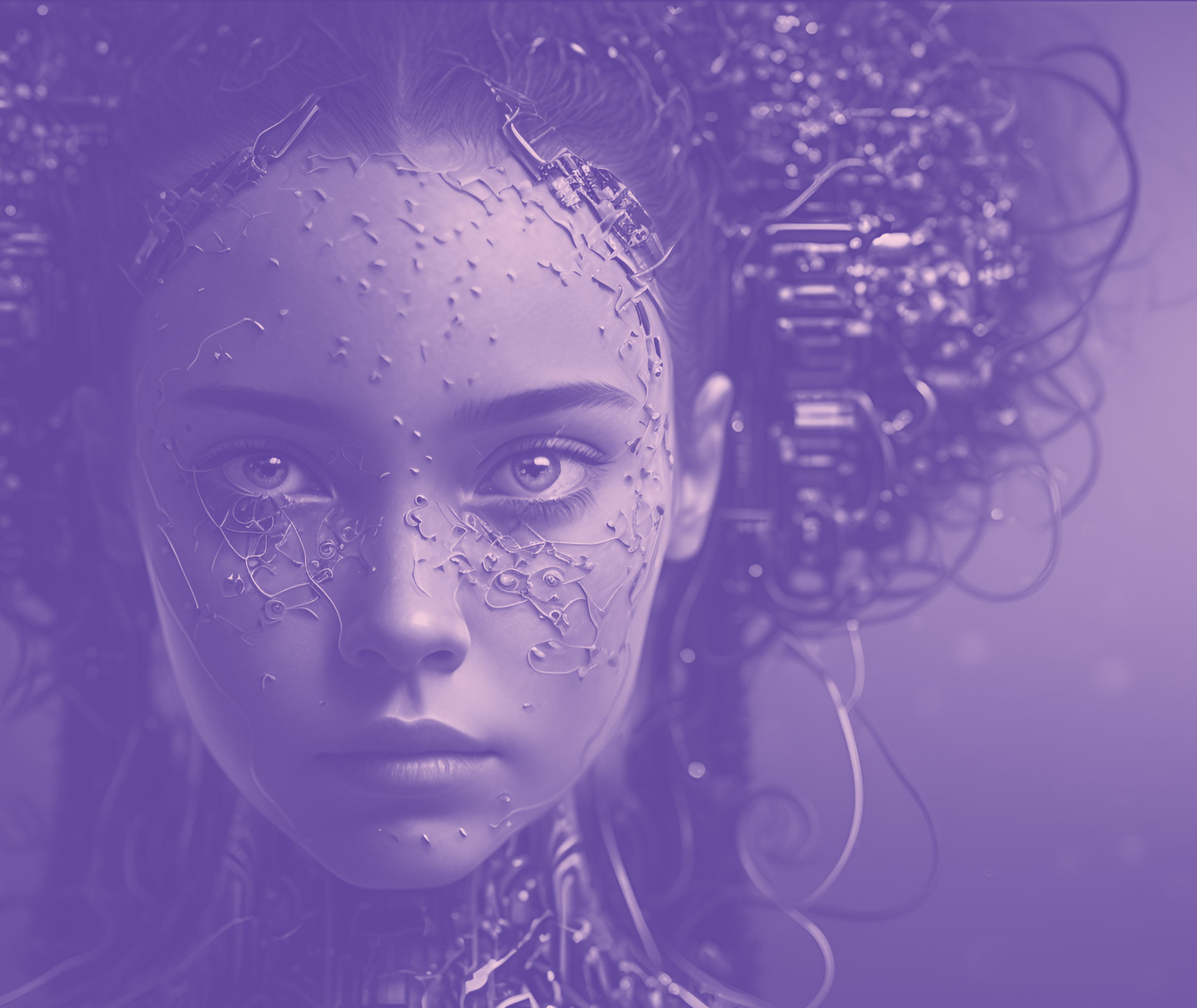Women are falling back on AI, here is what you can do

Artificial Intelligence (AI) is transforming how we live and work, accelerating breakthroughs and unlocking new possibilities. Yet for many women, meaningful engagement with AI remains limited—both in usage and in leadership. The challenge is clear—but so are the opportunities for change. Let’s explore where the gap lies and how women are stepping up to create a new AI future.
The Reality: Women Are Underrepresented in AI Usage & Development
- AI adoption gap: Women use generative AI tools about 25% less often than men, according to studies covering 140,000 participants worldwide.
- Usage disparity grows among youth: Among 18–24-year-olds, 59% of women use AI tools weekly versus 71% of men.
- Leadership underrepresentation: Women constitute only 22%–26% of global AI roles, with even fewer in executive positions.
- Design imbalance: Only 10–15% of contributors to AI conferences and design roles are women—limiting diverse perspectives in shaping the technology.
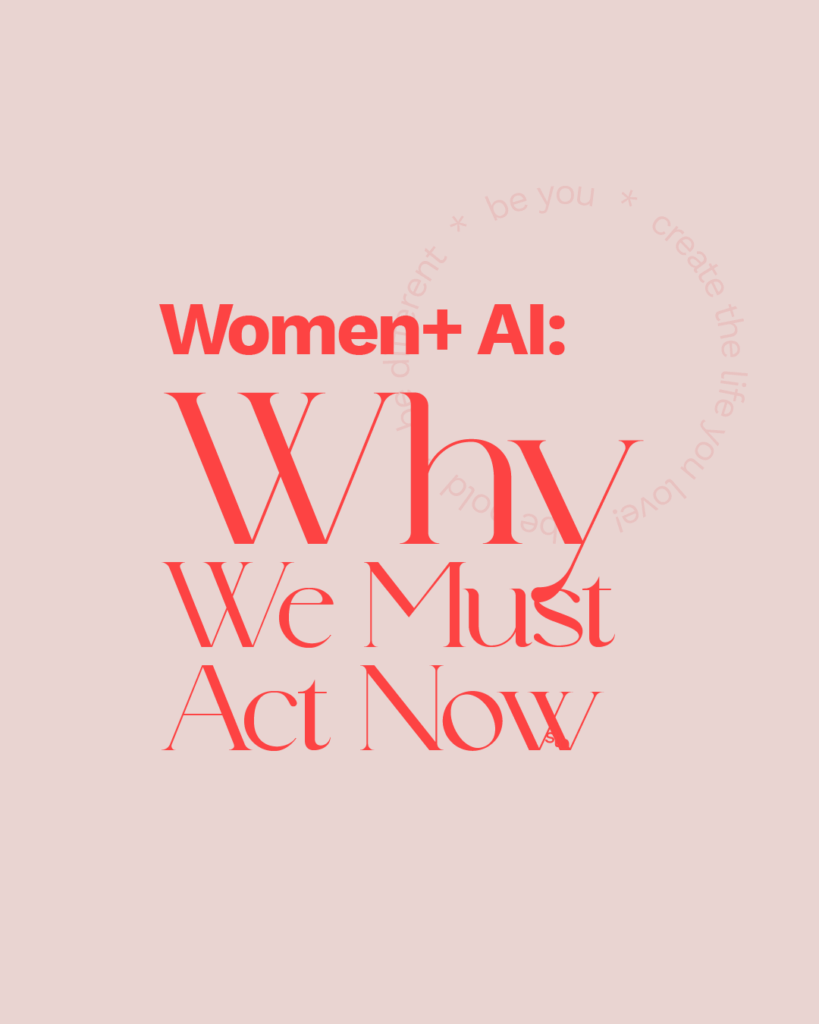
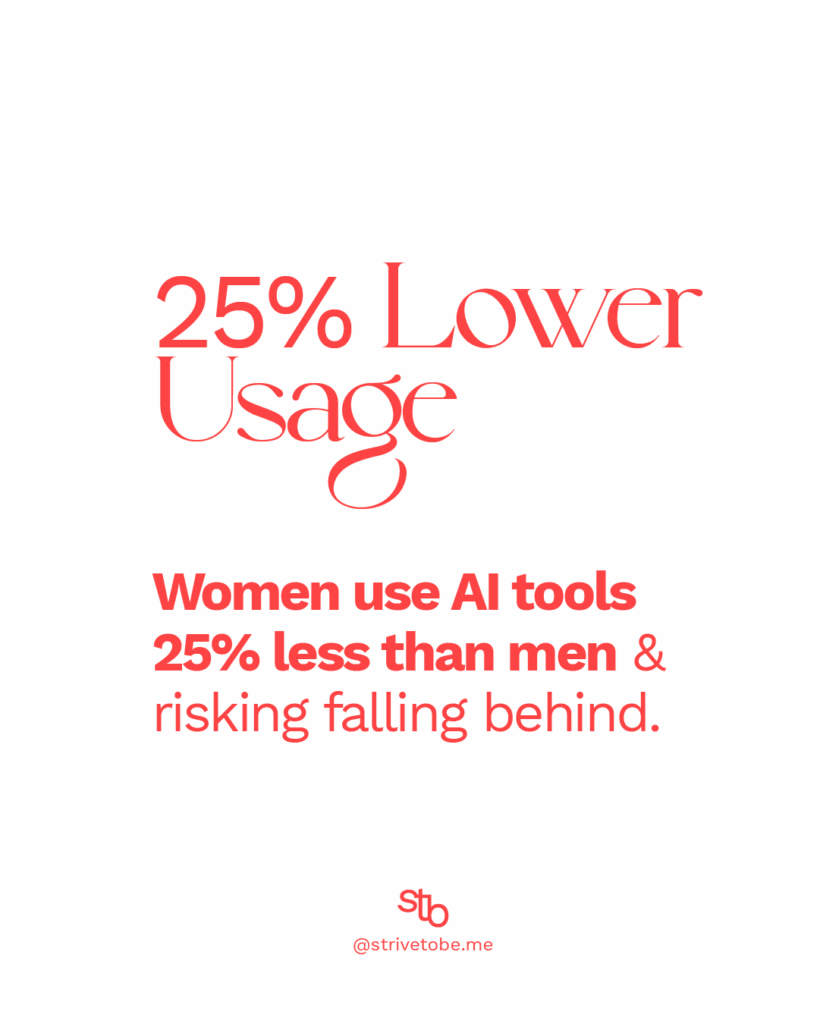
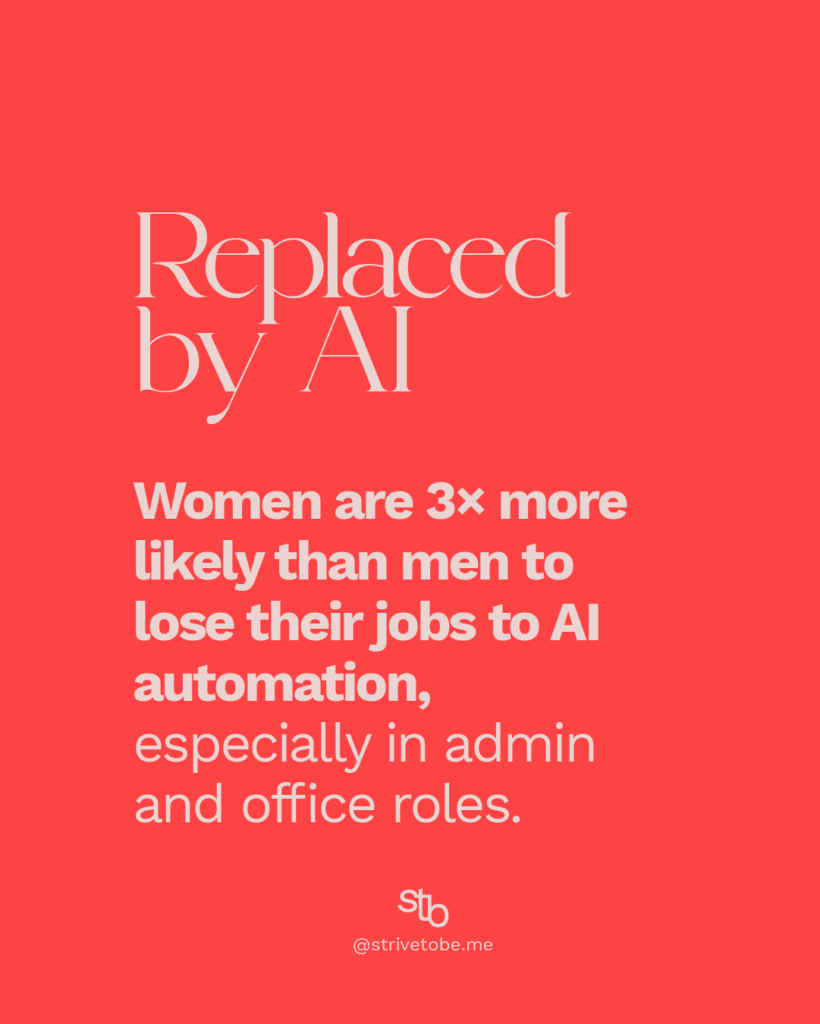
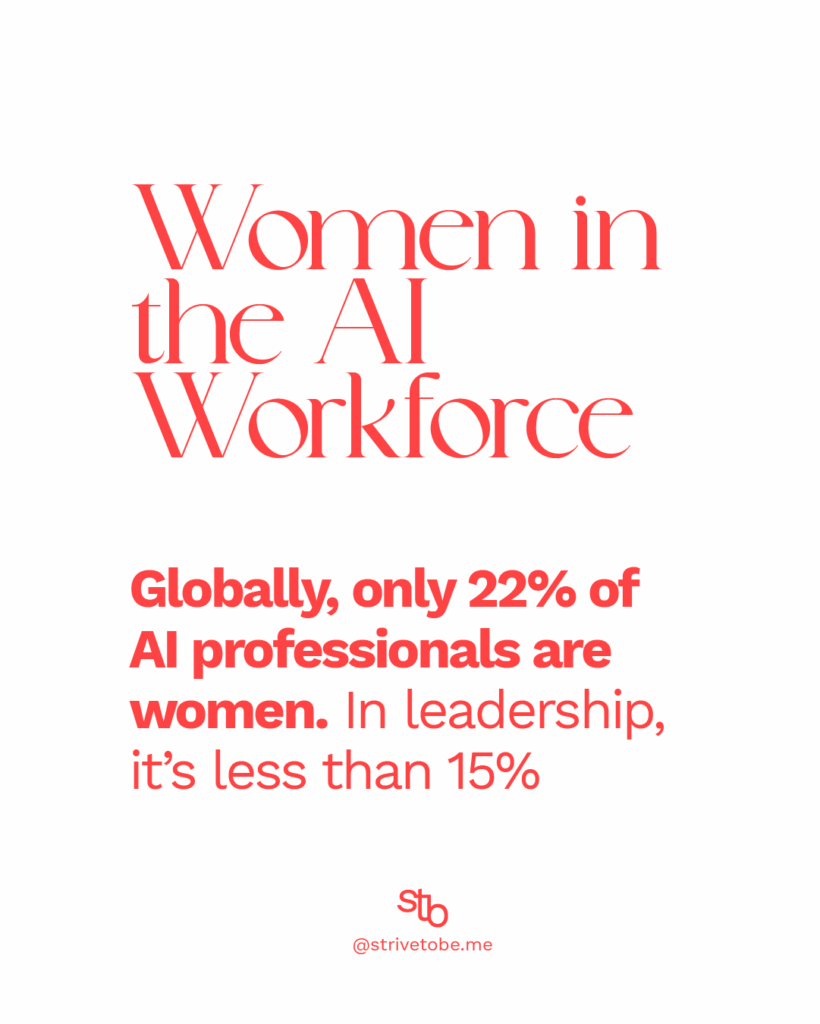
Why It Matters
- Career Equity: AI fluency is increasingly essential. Falling behind limits access to advancement and influence.
- Innovation Quality: Diverse teams create better-performing, user-friendly AI systems.
- Representation and Impact: Technology built without women often fails to meet women’s needs.
Whats important: AI becomes more “female” when women are present in the conversation, shaping the data, using the tools, and demanding better representation. You don’t have to change careers—you just need to show up, speak up, and share your perspective.
Inspiring Women Leading the AI Revolution
These examples showcase powerful leadership and innovation—proof that women are rewriting the rules:
- Mira Murati, former CTO of OpenAI, now leads Thinking Machines Lab, raising $2 billion in seed funding to build AI that enhances human-machine collaboration. Alumni Ventures
- Lucy Guo, co-founder of Scale AI and now a self-made billionaire, continues to shape the AI landscape through investments and entrepreneurial ventures. San Francisco Chronicle
- Noor Shaker, founder of SpatialX, applies AI to improve cancer diagnostics—bringing lifesaving innovation to pathology. Wikipedia
- Geetha Manjunath, founder of NIRAMAI, developed AI-based, non-invasive breast cancer screening and launched solutions to support public health during COVID-19. Wikipedia
- Katerina Spranger, CEO of Oxford Heartbeat, uses AI to support neurosurgical planning, improving the safety of brain implant procedures. Wikipedia
- Aisha Bowe, founder of STEMBoard and LINGO, flew on Blue Origin’s women-led space mission and continues to innovate in STEM education and engineering. Wikipedia
- Niceaunties, a Singapore-based artist, leverages generative AI to explore themes of aging and gender, reshaping art with bold, culturally rich narrative. Wikipedia
- At the AI for Good Global Summit, leaders like Alessandra Sala and Lisa Russell of Women in AI advanced diversity, ethics, and creativity in AI governance. Women in AI (WAI)
Each of these women demonstrates the power of leadership, creativity, and persistence in AI.
Five Steps to Close the Gap and Take the Lead
- Start Small and Experiment
Try AI for quick wins—summarizing documents, creating content drafts, or organizing tasks. Every experiment builds familiarity and confidence. - Upskill with Purpose
Look for free or low-cost workshops, webinars, or communities like Women in Data and R-Ladies. Peer learning reduces “AI anxiety.” - Build Your AI Network
Surround yourself with women and allies who are exploring AI. Join forums, Slack groups, or LinkedIn networks where you can exchange use cases and tools. - Make AI Work for You
Use AI to solve your problems—whether it’s automating admin work, personalizing health research, or planning your business finances. - Push for Inclusive AI Design
Support companies, projects, and organizations that prioritize diversity in AI development—like the Algorithmic Justice League.
AI is here to stay.
The question is not whether it will shape your life—it’s whether you’ll have a say in how.
Women are falling back on AI – But by getting comfortable with AI tools now, growing your skills, and making your voice heard in tech development, you’re not just catching up—you’re helping shape a future that works for women.
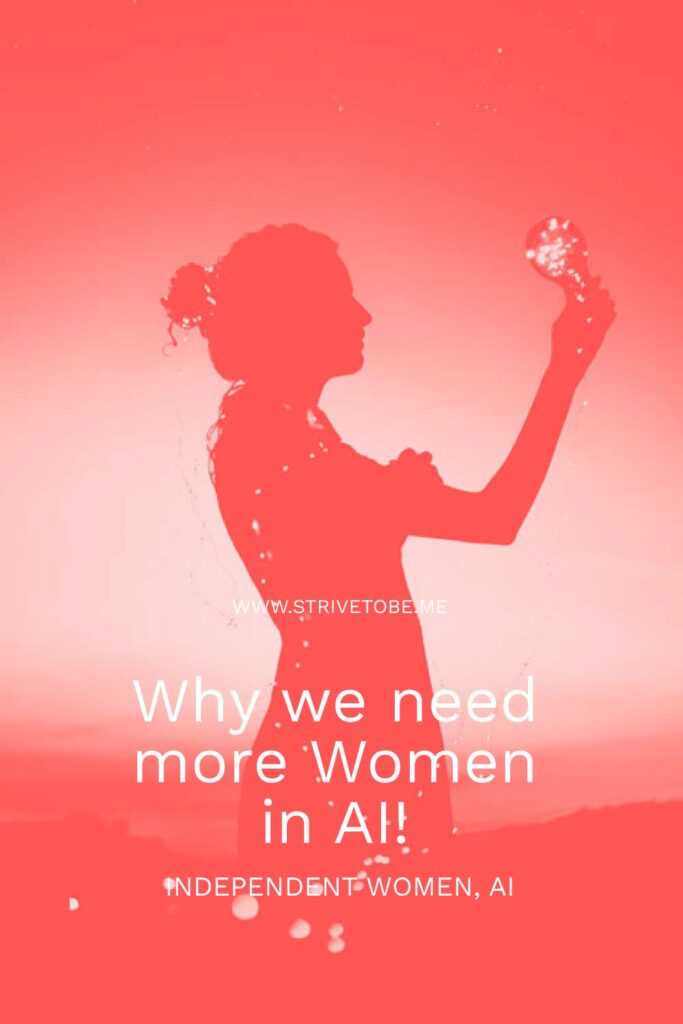
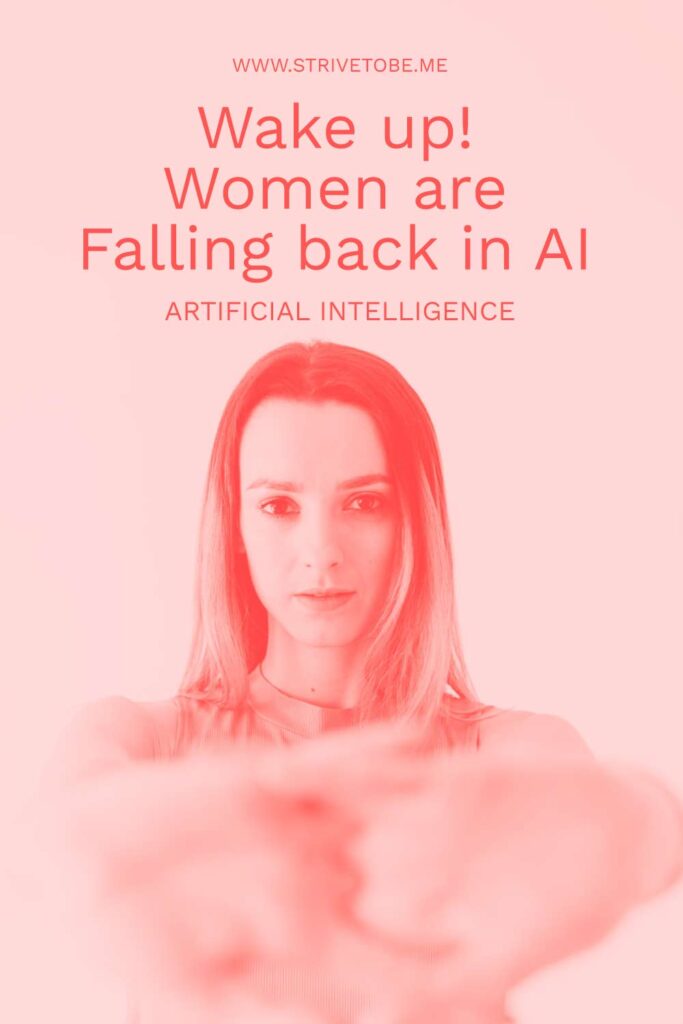
RESOURCES:
Why we need more women in AI
Melinda French Gates will donate $150 million toward women in the workplace—and one-third of it will go to AI
YOU MIGHT ALSO LIKE:
10 Actions to Make AI More Female
Can AI help women make their days easier?
